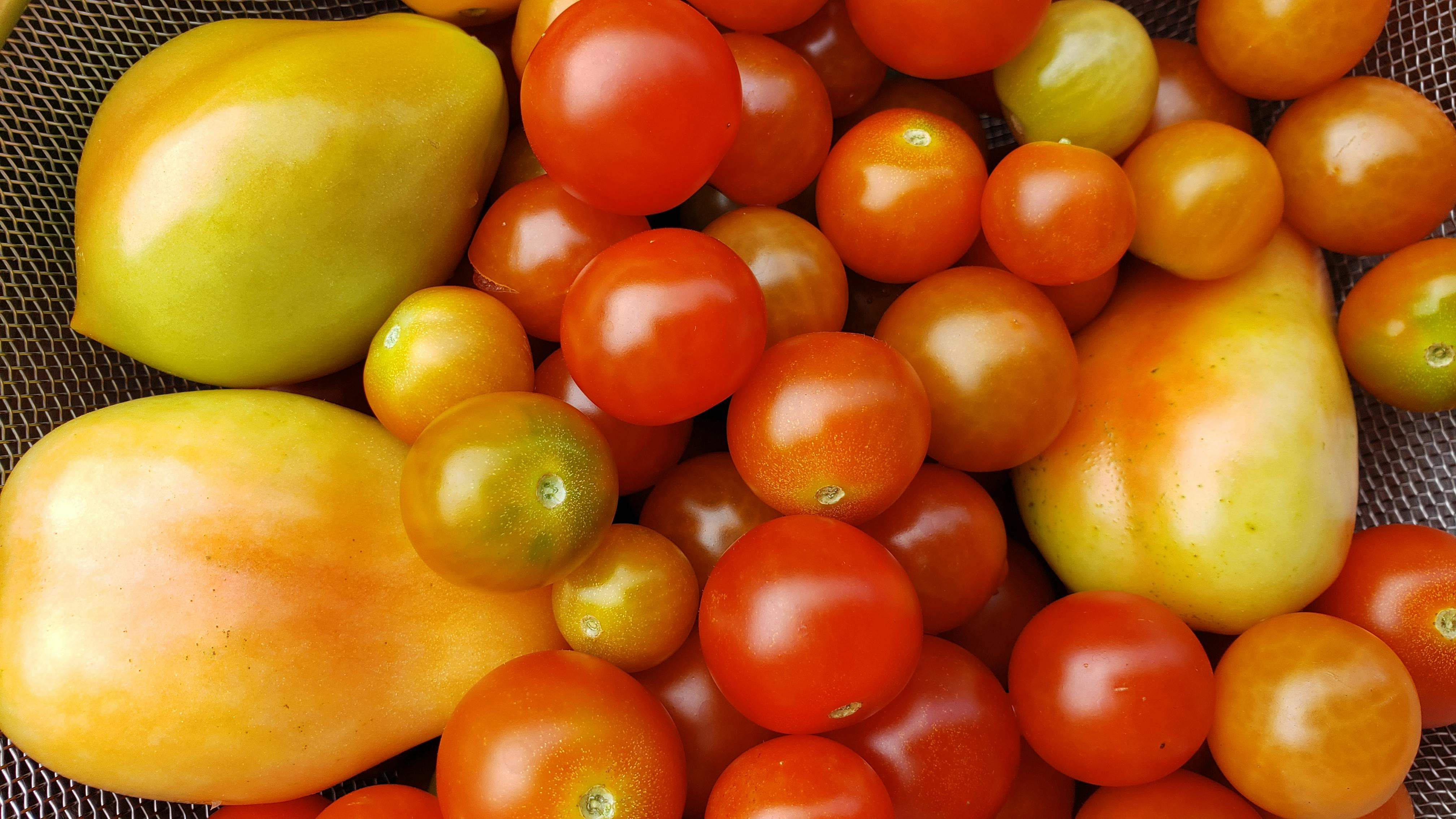First Fruits is an important concept in many religions and cultures all over the world. It is the practice of offering the first portion of a harvest, or the first offspring of animals, to a higher power as an act of gratitude and devotion. This act of giving is meant to demonstrate a deep respect for life and for the natural world, and to recognize that all things come from a higher power. First Fruits helps to strengthen spiritual connection and encourage faithfulness. It also serves as an important reminder that we are stewards of this earth, and that we must take care of its resources if we are to continue enjoying them.First Fruits is a religious concept in which the first produce or crops that are harvested from the land are offered as a tribute to God. This practice is observed by many religions, including Christianity, Judaism, and Islam. The offering of the first fruits is seen as a way of showing gratitude for all the blessings that have been bestowed upon us and our families.
The Significance of First Fruits in the Bible
The concept of “first fruits” is a recurring theme throughout the Bible, especially in the Old Testament. In many of the ancient cultures, offering first fruits was an important part of worship and sacrifice. In the bible, first fruits were used as an offering to God and as a thankfulness for His blessings and provision. It was also seen as a way to show reverence and respect for God’s holiness.
In Hebrew, the word for first fruits is bikkurim. It symbolizes a spiritual offering to God that is given out of thanksgiving. The giving of first fruits was seen as a way of expressing gratitude to God for His blessings and faithfulness. The Israelites were commanded by God to bring the first fruits from their harvests to the priest at the temple as an offering. This was seen as a way of showing devotion to God and honoring Him with their best resources.
First fruits are also mentioned in several other passages throughout scripture. In Deuteronomy 26:2-11, it says that when one enters into the Promised Land they should take some of their firstfruits to offer as an expression of thanksgiving and commitment to God’s covenant with them. Similarly, in Proverbs 3:9-10 it talks about how giving thanks with our firstfruits is pleasing unto God.
In addition, there are several New Testament references to firstfruits that illustrate its importance in Christian faith today. Romans 11:16 speaks about how believers are now considered “the firstfruits” since they have become holy through faith in Jesus Christ. Similarly, 2 Corinthians 9:7 talks about how believers should give generously out of their abundance because what they give will come back multiplied many times over as a result of their faithful giving.
Overall, it is clear that the concept of offering firstfruits was very important in biblical times and continues to be important today in Christian faith. It serves as both a reminder and expression of our reverence for God’s holiness, our thankfulness for His blessings, and our commitment to His covenant with us throughout history.
What Does First Fruits Symbolize?
First fruits is an important concept in many religions and cultures, and it often symbolizes a dedication to the gods or spiritual leaders. In Christianity, for example, it is typically seen as a way of giving thanks to God for the blessings that have been received. By offering the first fruits of any harvest, believers are expressing their gratitude and faith in the Lord. Other cultures have similar traditions, such as the ancient Greeks who offered their first harvest of grain to Demeter, the goddess of agriculture.
In some cases, first fruits can also be seen as a gesture of obedience and respect. For instance, in the Old Testament of the Bible, God commanded his people to bring him their first fruits at certain times throughout the year as an act of worship. By doing so, they were showing their commitment to him and their willingness to obey his commands. Similarly, in Hinduism and Buddhism, first fruits offerings are made to deities as a symbol of loyalty and dedication.
First fruits can also represent abundance and prosperity. In many cultures, offering up these gifts is believed to bring good fortune and blessings into one’s life. For example, some Native American tribes would offer up corn or other grains during times of plenty in order to ensure that future harvests were plentiful as well. This practice was seen not only as a way to honor the gods but also as a way of asking for continued abundance and prosperity in one’s life.
Ultimately, what first fruits symbolize can vary from culture to culture or even within different parts of the same religion or belief system. However, at its core it is often seen as an expression of gratitude and dedication towards something greater than oneself – whether that be a deity or simply a higher power that brings abundance into one’s life.
The Benefits of Offering First Fruits
The practice of offering first fruits has long been a part of many cultures and religions around the world. It is a tradition that dates back to ancient times and still holds great significance in many societies today. In this article, we will discuss some of the benefits associated with offering first fruits.
The most obvious benefit of offering first fruits is the spiritual significance it holds for many people. Offering first fruits is seen as a way to honor God or other higher powers by giving back a portion of what has been received. It is also seen as a sign of gratitude for all that has been blessed upon us. This act can bring feelings of peace and joy, as well as help to deepen our connection with God or other spiritual forces.
Offering first fruits can also be beneficial on an emotional level. It can provide us with feelings of contentment and security, knowing that we are taking care of ourselves and others in a meaningful way. This act can also serve as a reminder to be mindful about where our resources come from, and how we can share them with those who need it most.
Finally, offering first fruits can be beneficial from an economic standpoint. By giving away something that we have already received, we are freeing up more resources to use elsewhere, such as investing in our future or helping out those who may not have access to certain resources. In this way, we are creating an environment where everyone can benefit from our generosity and abundance.
In conclusion, there are many benefits associated with offering first fruits including spiritual growth, emotional wellbeing, and economic stability. Whether you practice this tradition as part of your faith or simply out of respect for the natural world around us, it is sure to bring positive results into your life!
Examples of First Fruits Offerings in the Bible
The Bible is full of examples of first fruits offerings, a practice that was an integral part of the ancient Israelite worship system. The offering of first fruits was a way for the Israelites to acknowledge God as the source of all they had and to thank Him for His generous provision. In the Old Testament, first fruits were typically given in exchange for a sacrificial animal or an offering made to the Lord. In the New Testament, Jesus taught about giving thanks to God for all we have received and giving our “first and best” to Him. Here are some examples of first fruits offerings in the Bible:
In Numbers 18:12-13, God instructed Aaron and his sons to present a tenth of all produce from their land as a “firstfruits offering” to the Lord. This offering was made in exchange for a sacrificial animal.
In Deuteronomy 26:1-11, God commanded that when an Israelite entered into possession of their land, they were to bring a basket containing several different kinds of produce as a “firstfruits offering” before the Lord at his sanctuary. This offering was meant to thank God for His provision and demonstrate faithfulness in keeping his commandments.
In 1 Chronicles 16:23-29, King David offered up “the firstfruits offering” before the Lord at his temple in Jerusalem after he brought up the Ark of God. He offered six oxen and twelve sheep along with various other kinds of offerings as part of this special presentation before God.
In James 1:17-18, James teaches about giving thanks to God for what we have been given by bringing forth our “firstfruits” – that is our works done out of love – as an offering back to Him. By doing so, we recognize God as our source and show our gratitude for all He has done for us.
These examples demonstrate how important it was for ancient Israelites to offer up their first fruits as a way to honor and thank God for His provision in their lives. It is also a reminder that we should always be thankful for what we have been given by bringing forth our best efforts back as an offering before Him.

Celebrating the Harvest with First Fruits
The celebration of the harvest is an ancient tradition that has been celebrated by many cultures around the world. It is a time to give thanks to the gods and goddesses for providing us with abundance and prosperity. One of the most common ways to celebrate this harvest is by offering first fruits, which are gifts of gratitude for all that has been given. The offering of first fruits can be done in many different ways, depending on the culture and community.
In some cultures, first fruits are offered to a higher power as an expression of gratitude and appreciation. This could be in the form of a special ceremony or ritual performed in honor of a deity or spirit. The offering could also be made to a local leader or elder in order to thank them for their guidance and leadership. In other cultures, first fruits are offered to friends and family as a sign of appreciation for their continued support throughout the year.
The offering of first fruits is not only a way to express gratitude but also serves as an important reminder that we must always strive to protect our environment from destruction and over-exploitation. By taking care of our land and resources we ensure that future generations will benefit from them as well. Additionally, it helps us stay connected with our ancestors who relied on nature’s bounty for survival.
In today’s world, celebrating the harvest with first fruits has become more popular than ever before. Many people choose to give away fruit baskets filled with produce from their local farmers markets or grocery stores as a way to thank those who have provided them with sustenance throughout the year. Others may simply choose to enjoy fresh seasonal produce from their own garden or purchase locally grown food from nearby farms or markets.
No matter how you choose to celebrate the harvest season, offering first fruits is a great way to show your appreciation for all that you have been given while also protecting our environment for future generations. So why not take some time this season and offer up some thanks with your own special offering of first fruits?
How to Give Your First Fruits Sacrifice
Giving a first fruits sacrifice is an ancient tradition in many cultures. It is a way of showing gratitude to the divine for the abundance one has been blessed with. Although the practice of giving first fruits varies from culture to culture, it is an act of reverence and respect that has been practiced for centuries.
In many cultures, giving a first fruits sacrifice is done in the form of food, such as fruits, grains, or vegetables. It is believed that by offering these items up to God, one is showing one’s appreciation for all that He has done for them. The offering can also be given in the form of money or items of value.
The ceremony for giving a first fruits sacrifice is often very elaborate and meaningful. In some traditions, a special prayer or chant must be said before the offering can be made. Other times, incense may be burned or candles lit as part of the ritual. Once the offering has been made, it is usually placed on an altar or other sacred place where it can be seen and appreciated by all who witness it.
In addition to giving material offerings, some cultures believe that giving thanks in prayer or meditation can also be an effective way to give your first fruits sacrifice. This practice helps open up your heart and soul to receive blessings from God and shows your appreciation for all He has done for you.
No matter what form your first fruits sacrifice takes, it should always come from a place of love and gratitude towards God and those around you. It should be an expression of your faith in Him and His presence in your life. By making this offering you are showing that you are thankful for His blessings and grateful for all He has given you throughout your life.
How to Observe a First Fruits Celebration
First Fruits celebrations are held in many cultures around the world each year. They are an important part of many religious traditions, and can be a great way to connect with your spiritual heritage. The basic concept of First Fruits is that you take the first harvest of your crop or other natural resources to offer up to God as a gesture of thanks. Here is how you can observe a First Fruits celebration:
Begin by setting aside some time for reflection on the significance of the event. Consider how it ties into your faith and how it connects you with generations past and future. Spend some time in prayer or meditation, thanking God for his provision and asking for guidance in your life.
Next, find a place outdoors where you can make an offering to God. This could be a quiet spot in nature or even just your backyard. Make sure to have something on hand that will allow you to make an offering such as flowers, fruit or vegetables.
On the day of the celebration, gather together with family and friends who share your faith tradition. If possible, have everyone wear clothing that reflects their cultural heritage or religious beliefs. Begin by giving thanks to God for his blessings. Then make an offering from whatever items you have brought along.
Finally, spend some time talking about what this day means both on a personal level and within your faith tradition. Discuss how this practice has evolved over time and what it has meant for different generations. Reflect on how this practice has helped shape who you are today.
Observing a First Fruits celebration is a meaningful way to connect with your spiritual heritage and thank God for his blessings. Taking part in this tradition can leave you feeling renewed and refreshed, knowing that God’s goodness is alive within us all.

Conclusion
First Fruits is an important spiritual discipline for the Christian faith and it is a reminder to honor the Lord with our first and best. It is a time of reflection, of gratitude, and of joy for all that God has done for us. It is also a way to show our commitment to Him by offering the best that we have to Him. First Fruits helps us stay focused on God’s goodness and His provision in our lives, not just during this season but throughout the year.
The act of giving First Fruits is about more than just money; it’s about developing a spirit of generosity and a heart that’s willing to give back out of gratitude for all that God has done. By offering our First Fruits as an act of worship, we are acknowledging that everything we have comes from Him and expressing our love and commitment to Him.
First Fruits is an important spiritual discipline in the Christian faith because it serves as a reminder of God’s goodness and provision in our lives. It encourages us to develop a generous spirit, humble ourselves before Him, and offer up the best we have as an act of worship. Ultimately, First Fruits helps us draw closer to God and grow in our relationship with Him.



